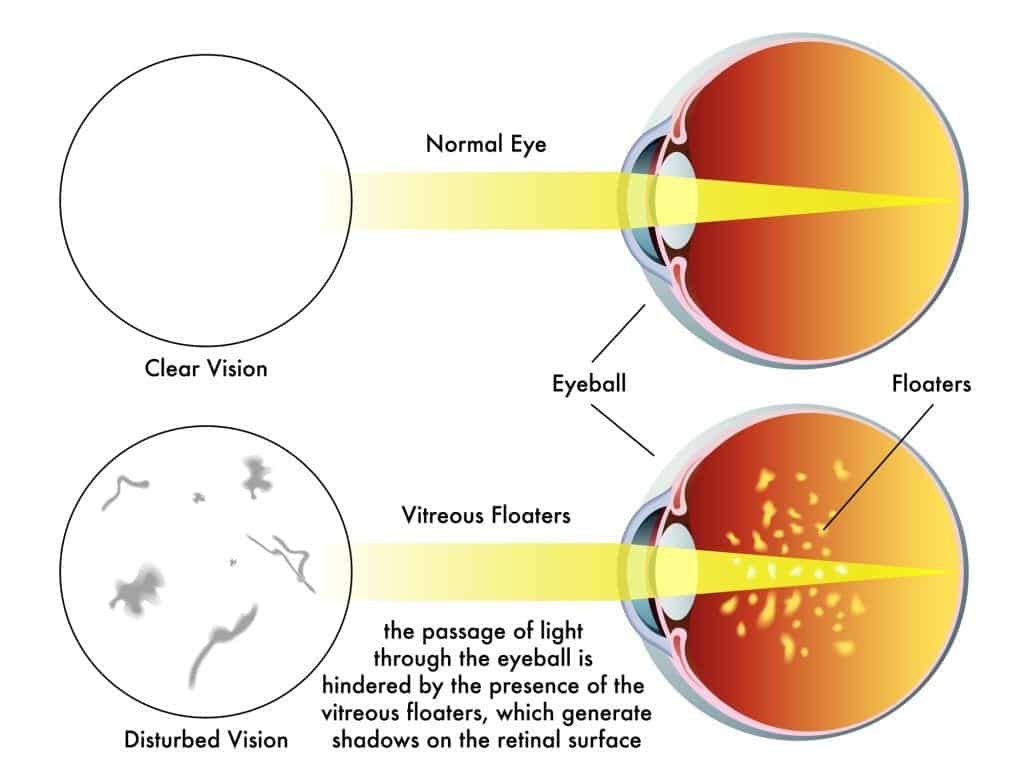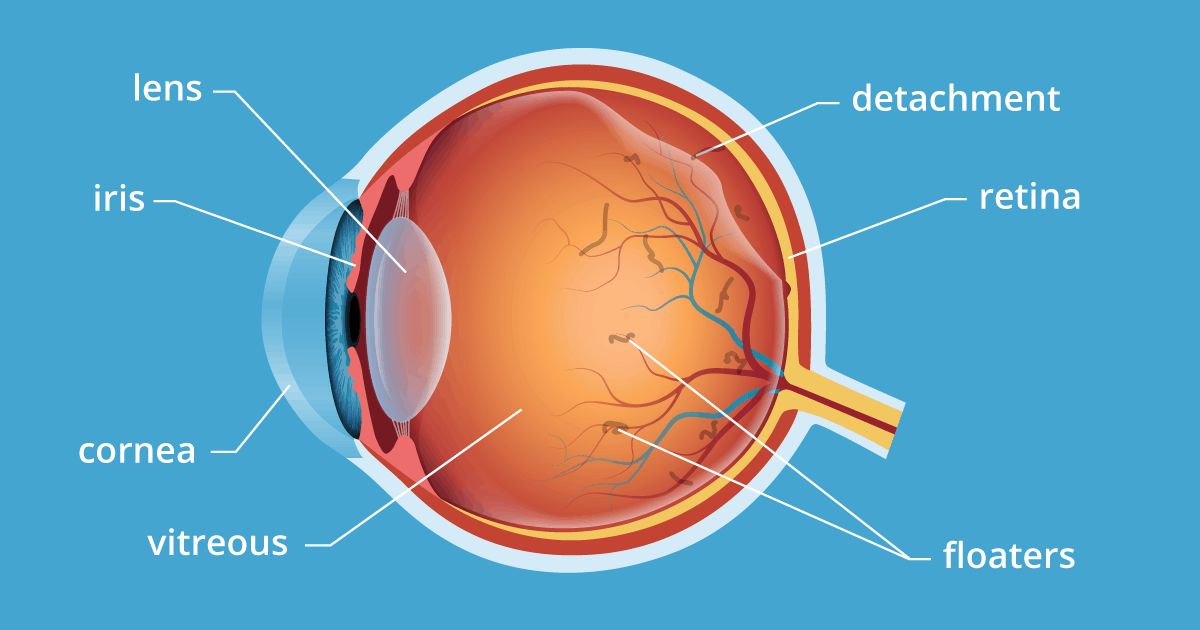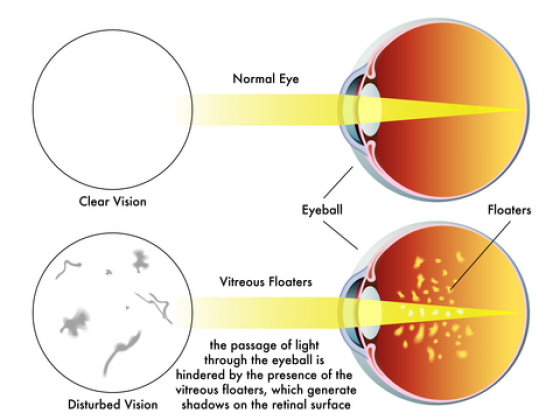
Have you ever noticed tiny specks or dots floating in your vision, especially when looking at a bright background? These are called "floaters" and they are a common phenomenon that occurs as we age. While they are usually harmless, they can sometimes indicate an underlying eye problem. In this article, we will explore the causes and treatments of floating dots in vision.
What Are Floaters?
Floaters are tiny specks, spots, or cobweb-like shapes that appear in your field of vision. They are particularly noticeable when you look at a bright background, such as a clear sky or a white wall. Floaters are actually small bits of debris that float in the vitreous humor, the gel-like substance that fills the inside of your eye.
The vitreous humor is made up of water and various proteins. As we age, the proteins in the vitreous can clump together and cast shadows on the retina, which is the light-sensitive tissue at the back of the eye that sends visual signals to the brain. These shadows are what we perceive as floaters.
Causes of Floaters
Floaters are most commonly associated with aging, but they can also be caused by other factors, such as:
- Eye injury or trauma
- Eye surgery
- Retinal tear or detachment
- Cataract formation
- Diabetes
- Migraines
If you suddenly notice a lot of new floaters or flashes of light in your vision, it could be a sign of a retinal tear or detachment, which is a medical emergency. You should see an eye doctor right away if this happens.
Treatments for Floaters

In most cases, floaters are harmless and require no treatment. However, if they are particularly bothersome or interfere with your vision, there are a few treatment options available:
- Vitrectomy: This is a surgical procedure in which the vitreous humor is removed and replaced with a saline solution.
- Laser therapy: This involves using a laser to break up large floaters into smaller pieces that are less noticeable.
- Eye drops: There are some eye drops available that claim to dissolve floaters, but there is no scientific evidence to support their effectiveness.
It's important to note that these treatments are not without risks and should only be considered in severe cases. Your eye doctor can help you determine the best course of action.
Preventing Floaters

While floaters are a natural part of aging and can't be completely prevented, there are a few things you can do to promote good eye health:
- Eat a healthy diet rich in vitamins and minerals that promote eye health, such as leafy greens, citrus fruits, and fish.
- Protect your eyes from injury by wearing protective eyewear during activities such as sports, DIY projects, and yard work.
- Get regular eye exams to catch any potential eye problems early on.
Conclusion
Floating dots in vision are a common occurrence, especially as we age. While they are usually harmless, they can sometimes be a sign of an underlying eye problem. If you are concerned about your vision or notice any changes, it's important to see an eye doctor right away. With proper treatment and prevention, you can maintain good eye health and reduce the risk of floaters and other eye problems.